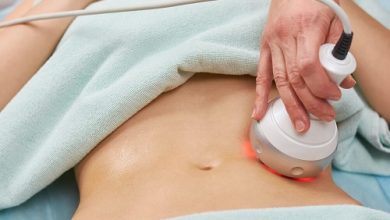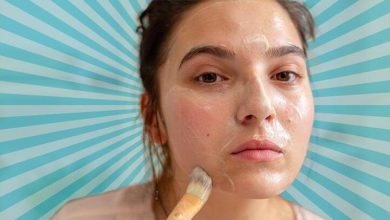What does science say about CBD?

There are several studies and researches worldwide confirming and explaining how our health can benefit from CBD use.
Most selected studies now show the effectiveness of CBD in children with treatment-resistant epilepsy. The number of seizures was significantly reduced in children with Dravet syndrome at a dosage of 20 mg CBD/kg (in addition to standard therapy). The effectiveness of doses between 300 and 600 mg in social anxiety disorders is also evident. The results are contradictory concerning the antipsychotic effect, the analgesic effect and the effect on sleep.
Besides, you should know that CBD is largely consumed in whole Europe in different forms: as flowers, oils, as a cosmetic to rejuvenate your skin or as a joint to relax. For everyone who’s interested in, there are lots of CBD hash online-shop, and everything is totally legal.
Science shows how to use medicinal CBD
The effect of CBD on Dravet syndrome is best documented. Together with the existing standard therapy, CBD in a dosage of 20 mg/kg body weight can significantly reduce the frequency of seizures. Other controlled studies by the company GW Pharmaceuticals should also confirm the effect on Lennox-Gastaut syndrome.
In an open study, the tolerability of CBD in doses of up to 50 mg/kg body weight in combination with the existing medication was examined in 214 children with untreatable epilepsy.
Also, worth mentioning is a retrospective study with 74 epilepsy patients aged 1-18 years and a survey of parents of 117 children with therapy-resistant epilepsy. These three open studies also indicate efficacy in particular forms of epilepsy and appropriate tolerability. Therefore, an attempt with CBD is recommended for patients with epilepsy who cannot be successfully treated with conventional antiepileptic drugs. However, the financial aspect must also be taken into account. CBD is not covered by health insurance, and not all patients can afford to try it.
Two smaller studies on the effectiveness of CBD for social anxiety disorder show that 600 and 400 mg of CBD reduce anxiety. This was confirmed for 300 mg in a more extensive study – but not for 100 and 900 mg. The clinical relevance of this finding is still open. So far, only the effect on “public speaking” has been examined.
Regarding a possible antipsychotic effect, it can be stated that CBD in a dosage of 800 mg has a similar effect of the amisulpride one. For both substances, a significant reduction in the psychotic symptoms of schizophrenia was observed in 39 patients. The substantial increase in serum anandamide levels observed with CBD could indicate a possible mechanism of action.
No significant effect was observed with a single dose of 300 or 600 mg CBD in 28 schizophrenic patients. On the other hand, a study by GW Pharmaceuticals with 88 patients would seem to demonstrate an antipsychotic effect. A systematic review found that the evidence for an effect on cognitive function in schizophrenia patients is limited. The same applies to the antipsychotic effect.
The results on the effect of CBD on sleep
In a placebo-controlled double-blind study with 15 patients suffering from insomnia, only 160 mg CBD showed a significant increase in sleep duration – but not with 40 and 80 mg. All three CBD dosages significantly decreased dream recall.
However, the relevance of this observation to sleep is unclear.
The effect could be based on a reduction in the capacity to dream or a reduction in the memory of the dreams – e.g., a reduction in the number of awakenings. Another placebo-controlled, double-blind study with 24 patients showed no effect of CBD on sleep quality when dosed individually.
In contrast, in a crossover study with 34 patients, CBD positively affected sleep quality. Therefore, it is conceivable that the different results are due to individually different reactions to CBD, meaning that CBD improved or prolonged sleep in some patients and not in others.
Concerning the study by Carlini and Cunha, however, it could also be assumed that only higher doses have an objectifiable sleep-promoting effect.
CBD and pain
A placebo-controlled double-blind study shows that CBD – in contrast to THC – has no analgesic effect in chronic pain and individual dosage. In another double-blind, placebo-controlled study with predominantly MS patients, a significant effect was found for both THC and CBD. For CBD, however, this result is only based on the results of 12 patients. Perhaps CBD only has an analgesic effect in individual patients with certain types of chronic pain. Patients with MS could benefit more than those with other forms of pain. There is no clinical evidence that CBD could also help with acute or chronic pain in the joints and muscles.
Legal CBD and its dosage
There are no clinical studies on the widely praised inflammatory effect and the effect of CBD on tumours. However, there is a considerable amount of positive preclinical data on the tumour effect.
If CBD, as you can now legally buy online at JustBob.shop, is considered in patients with pain, sleep disorders or other diseases, the following procedure is recommended.
The dosage should be increased slowly and adjusted individually – e.g. based on the patient’s assessment of tolerability and effectiveness.
The daily dose can be divided into two doses (morning and evening). CBD has interactions with other medications.
Therefore, an increase in the sedative effect of other drugs must be expected.
Caution is required if drugs with a potentially liver-toxic effect are also taken.





